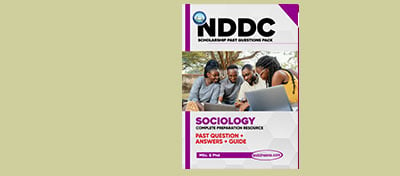Employers seeking to hire potential employees adopt the use of different kinds of test depending on the nature of the role. Practicing with this SHL-Style Aptitude Test Preparation Tips and Past Questions Guide will help make your upcoming test a lot easier.
In this post, we have made all the information regarding your SHL test available. You will also get access to helpful tips that will help you stand out in your forthcoming SHL test.
What Are SHL Tests?
SHL-style tests usually consist of timed multiple-choice tests questions that focus on specific skill sets, such as verbal reasoning, logical analysis, numerical computation, or situational judgment. These questions are designed to evaluate your acquired skills and intelligence. A higher score in these assessments often indicates a high chance of being selected for your desired role.
It is important to note that these tests are usually taken online. Once your application is accepted, you will receive an email inviting you to the test. If you successfully pass the initial online assessment, you may be required to visit an assessment center to undertake a second test aimed at qualifying you for your desired role.
Additionally, if you advance past the initial assessment rounds, the hiring manager will likely contact you for an in-person interview.
Download Your SHL Style Aptitude Test Pack Here
SHL General Ability Test
The SHL General Ability Test serves as a screening test commonly employed for entry-level positions. This test encompasses a wide range of cognitive abilities, including deductive reasoning, inductive reasoning, numerical reasoning, and verbal reasoning. By evaluating these key aspects, employers can easily identify promising candidates early on in the recruitment process.
- SHL Aptitude Test: Among the most frequently included pre-employment test domains within the SHL Aptitude Test are numerical, verbal, and logical reasoning. These assessments serve as valuable tools for employers to measure a candidate’s suitability for a particular role. Below are some examples of aptitude tests;
- Numerical Reasoning: Numerical reasoning assessments seeks to test your ability to work with numbers and figures. These tests usually consists of fundamental mathematical concepts such as fractions, percentages, probability, geometry, and algebra. Also note that some specialized roles in fields like consulting and analysis may demand advanced mathematical skills. In most cases, this test will task your ability to apply your mathematical knowledge in a practical, real-world context. You’ll be presented with word problems that require you to use your numerical skills to find solutions relevant to a specific industry or profession.
- Verbal Reasoning: Irrespective of your chosen profession or preferred role, effective communication is a vital skill. Whether you find yourself drafting reports, making presentations, or engaging in research, the ability to identify key topics, distill and synthesize extensive text, and express ideas clearly is essential. It is important to note that this SHL verbal reasoning tests usually consist of a series of true/false questions. These questions present two premises followed by a conclusion, and your task is to arrive at conclusion based on the provided information.
- Inductive Reasoning: When it comes to inductive reasoning questions, they often challenge you to discern patterns and make predictions about future items in a series or matrix. During SHL tests, these questions frequently present abstract shapes and figures that form patterns. Your task is to determine which figure completes the sequence based on your analysis.
- Deductive Reasoning: Deductive reasoning operates on the foundation of certainty. In a deductive argument, the conclusion can be established through the information that is provided. When encountering deductive reasoning questions, you will be presented with a set of statements and tasked with determining which of the given answers can be unquestionably proven based on the provided information, leaving no room for doubt or ambiguity.
Get Your SHL Style Aptitude Test Past Questions Pack Here
- Personality Test (SHL OPQ32): SHL offers two prominent personality tests as part of their assessment format under this test. The first test measures your motivation, drive and determination. The second test, known as SHL OPQ32, evaluates a broad spectrum of 32 distinct personality traits, which encompass areas related to sociability, influence, empathy, and thinking style. This is all in a bid to determine your suitability for your desired role. These personality tests consist of a series of statements where you will be tasked with showing whether you agree or disagree with the statement. These assessments aim to provide employers with valuable insights into your personality traits, helping them make informed decisions when evaluating your suitability for the role you are applying for.
- Situational Judgement Test: Situational judgement tests contains questions that are structured to present scenarios that mirror real work-related situations. Your task is to carefully evaluate each scenario and select the most appropriate response. These tests are necessary in accessing your ability to make sound judgments and handle real-world situations in a professional setting.
- Senior Management Aptitude Test: Applicants seeking senior management roles are often required to demonstrate their competencies across a spectrum of skills, encompassing verbal, numerical, and logical reasoning. This SHL test consists of questions derived from various tests, including verbal, numerical, and logical reasoning abilities. This test helps employers to determine your suitability for leadership roles by assessing your proficiency in key areas.
- SHL AMCAT Test: The SHL AMCAT Test is designed to evaluate candidates’ quantitative, verbal, and logical abilities. What differentiates this test from other pre-employment tests is its adaptive nature. As you progress through each section, the difficulty level dynamically adjusts to your responses. The content within each section is intentionally structured to be more challenging compared to conventional hiring tests. This adaptability and enhanced difficulty make the SHL AMCAT Test a robust tool for identifying top-tier talent during the hiring process.
- SHL Mechanical Comprehension Test: Individuals aspiring to secure technical positions may encounter the SHL Mechanical Comprehension Test as part of their assessment process. This test covers several technical subjects, including tools and equipment, force and torque, as well as fluid dynamics. Its major goal is to evaluate a candidate’s knowledge and aptitude in these specific areas, ensuring that they possess the requisite skills and understanding required for success in their intended technical role.
- SHL Calculation Test: Several employers use the SHL Calculation Test to evaluate a candidate’s fundamental numerical aptitude. In this test, you will face questions relating to missing variables, and your task will be to identify and calculate the missing value. The question types encompass a range of mathematical operations, including addition, subtraction, multiplication, consideration of the order of operations, and the ability to manipulate equations.
- SHL Motivation Questionnaire (MQ): The SHL Motivation Questionnaire (MQ) is specifically framed to assess the work motivations of potential employees. This questionnaire measures 18 distinct factors that have an impact on an individual’s motivation in the workplace. In addition, the MQ helps employers gain valuable insights into a candidate’s motivational drivers, which helps them to match the right individuals with roles that align with their motivations and aspirations.
- Reading Comprehension Test: This test seeks to measure your ability to extract relevant information from written sources and make objective judgments on the basis of that information that has been made available to you.
- Contact Center Simulation: The Customer Contact Simulation is designed to check if a candidate posses certain skills that relates to customer contact roles, such as your ability to navigate application interfaces, identify customer complaints, and remember information given by customers.
How to Excel in any SHL Test
- Practice sample questions of the tests you are likely to face during your hiring process. This will help boost your confidence ahead of your SHL-Style Test.
- Don’t forget to review your answers before and after submitting so as to know where to improve upon.
- Take time to study and master the pattern of the sample test questions you take.
- Pay careful attention to instructions as this will influence your chances of excelling in your SHL test.
- Find out which SHL Assessment Test you are taking so as to know which to prepare for.
- improve on your skills required for the role you are applying for.
- Practice effective time management ahead of your SHL test.


![Umuchinamere Microfinance Bank Aptitude Test Past Questions and Answers-[Free Download] Umuchinamere Microfinance Bank Aptitude Test Past Questions and Answers-[Free Download]](https://teststreams.com/blog/wp-content/uploads/2023/08/Umu.png)

